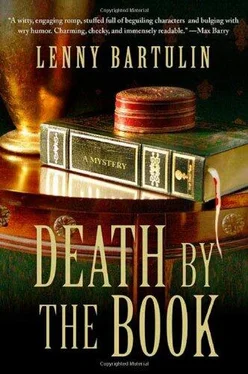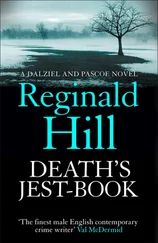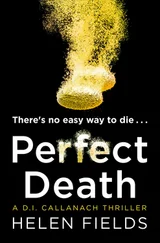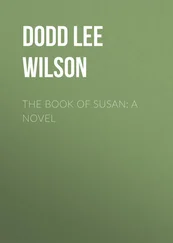On the bus to Kings Cross, Jack searched through the Edward Kass books in his bag for the poem Kass had given Annabelle. He found it in Entropy House . The singed copy.
His forehead smeared with defeat,
His journey without reason, willed —
The young man turned at the bridge
And shouted his commands.
Her arms broke the day,
The highest steps too splendid
For the eyes. Ten centuries
Blown about — their weight
The sin of pride. Only God
Satisfied, among the dead,
The price of empty glory faded,
And then crawled on
In exile with a myrtle crown. The light
Observed brilliant in the same,
And three mirrors the whiteness of the moon —
Another sphere proceeds the truth
You seek. Mandatory, to slake
The great awe.
Suffer the world rejoiced.
I am obedient too late.
Jack closed the book and slipped it back into his bag. The ancient Egyptians said that when you died, the god Ra weighed your heart against a feather, on a set of golden scales. If it were lighter, then heaven awaited. During their meeting, Edward Kass was going to have to hope for a feather the size of New Zealand.
The boss was behind the counter at Celia’s Crystal Palace, head down over the till, counting out the fifties. Her lips moved silently. There were more golden notes than Jack saw in a month. Maybe he should make the switch to designer costume jewellery.
“Lucky I’m not wearing a balaclava.”
Celia looked up, surprised, and pushed the till shut. The faint sound of a bell echoed from it. A few fifties were still scrunched in her hand.
“I didn’t hear you.”
“The papers call me the Phantom.”
Celia smiled. “I’ll just put this away in the safe.” She bent down below the counter. Jack heard a few digital-sounding beeps, a metallic creak, and then the hollow thud of the safe door banging shut.
“Right. Shall we go?”
“After you.”
She came out from behind the counter and went over to a large mirror: it opened to reveal a cupboard. She took out a grey woollen coat and worked her shoulders into it. Then she looked into the mirror and removed her sparkly earrings, fixed a black woollen beret on her head and teased her fringe a couple of times. “It’s just down the road. Only take a minute.”
Jack waited while she wrote something on a small piece of paper and then taped it to the glass of the front door. She let Jack through and then followed him outside.
“Boy, it’s cold today!”
“Arctic,” said Jack.
“I love it. Winter’s my favourite season. And autumn as well. The cooler months.”
Jack believed her. Any excuse for more wool.
Celia moved to the edge of the road and pointed. “It’s just down there.” They crossed Macleay Street and headed in the direction of Woolloomooloo. “We’re in St Neot Avenue.”
“Wonder what he’s the saint of,” said Jack.
“Poets, probably.”
“He must have suffered terribly.”
“It’s only appropriate, then.” Celia’s tone hardened. She quickened her pace.
Jack followed, half a step behind. “Is your father feeling better?”
“He’s working, I suppose.”
“No more packages in the mail?”
“Maybe there’s one waiting now.”
“Phone calls?” Jack paused. “Visitors?”
“Just you, Mr Susko.”
They walked on. Questions were crowding Jack’s frontal lobe. Questions about Durst, about Kasprowicz, about Celia, too. It made him frown. So did the guy who walked past wearing designer-ripped jeans, a bleached red T-shirt, scarf, sunglasses, thongs and a takeaway latte.
They turned into St Neot Avenue, following the long curve of an apartment block on the corner. Cars lined either side of the street, bumper to bumper all the way down. Lots of trees, too, and small front yards with manicured hedges and lawns and potted plants. It looked like an expensive stretch of real estate. Every building was an apartment block, in a range of architectural styles. Across the road, Jack noticed a renovated art-deco number with a column-framed entrance and a couple of palm trees out front. It even had a name: Grantham. But that was not where Edward Kass lived.
Celia stopped in front of a plain, redbrick low-rise opposite. Its name was simply Twenty-One .
“This is it,” she said.
The path leading to the entrance was of pale blue-and-yellow-tinted stone. Hedges on either side added to the shadows thrown by a large frangipani tree that grew in a small patch of grass, half-naked and slightly obscene with its blunt, sausage-like branches. Jack shivered for a second as he went up the three front steps: under the entrance awning it was dark and the cold was palpable, as if he had walked into a butcher’s coolroom. He looked through the glass doors into the foyer, but inside it was dark too, and did not look much warmer. Dank was the word that came to mind.
Celia slid a key into the lock and pushed the door open. The place smelt like closed windows and cheap carpet cleaner. She pressed a switch on the wall: the lights came on in the stairwell with a lazy clunk . Jack looked around. Maroon carpet, wood-veneer walls and a bit of dull brass here and there. And a sulking pot plant that looked like it needed a holiday. They began to climb the stairs, under weak yellow light that would have made an athlete look sick. Not a sound but the odd creaking step, or the banister giving a little. Somehow, the place suited Jack’s idea of Kass: moody, mostly cranky and never happy with visitors. Then again, the place was probably all he could afford after coming out the tight end of a family fortune.
The apartment was on the first floor. The front door was slightly open. Celia gave a puzzled look as she pushed it open.
“Hello? Dad?”
Jack walked in behind her. The place was dark: green curtains on two windows were drawn, filtering a weak, four-o’clock light into the room. A lamp in the corner glowed dimly and the ceiling light drizzled down at about twenty-five watts. Two large, dark green lounge chairs with wide armrests and wood-grain edging kept each other company. The room was crowded with furniture and bookshelves and the walls were covered in pictures.
“Dad?”
Jack looked around. Without thinking, he sniffed the air: something strong, sulphurous. Something wrong. Instinctively, he took a step backwards, as if any second he might have to make a run for it. The whole room seemed to grow darker, and smaller, seemed to shrink in around him like a child’s fairytale nightmare.
Celia slipped off her coat. “Is anybody here?”
There was a noise, like something being knocked over. Jack and Celia turned towards the doorway opposite. Ian Durst walked into the room. There was blood on his white shirt, patchy streaks where a hand had gripped or pulled or wiped itself. And he was holding a gun. The way his shoulder drooped down a little told Jack that it was not made out of plastic.
Celia Mitten eventually stopped screaming. She was now sitting in one of the lounge chairs, right up on the cushion’s edge, legs clamped together and to the side, every part of her shaking, all in different directions. Durst had given her a whisky that she had not yet tasted. At least it gave her something to stare at. Shock had shut her down for the moment.
Jack went into the kitchen, where Celia had just been. Durst followed him.
Читать дальше












